Issue 14 : 16 September 2018
Talofa Lava, Kia Orana, Malo E Leilei, Tena Koutou, Hello ...
... and welcome to the latest issue of “For The Love Of The Game”, the official e-zine of the New Zealand Amateur Sport Association Inc. We hope you enjoy reading the articles below.
If you have any feedback on this issue, ideas for future articles, or would like to contact the Editor, please click here. And, you are invited to forward the e-zine to others you know, who may be interested in reading it.
If you are interested in applying for membership of the Association, please click here.
2018 National Amateur Sports Club Survey Is "Open" ...
The first-ever national survey of Amateur Sports Clubs in New Zealand is now underway, with those interested to participate able to complete the survey on-line, by clicking here.
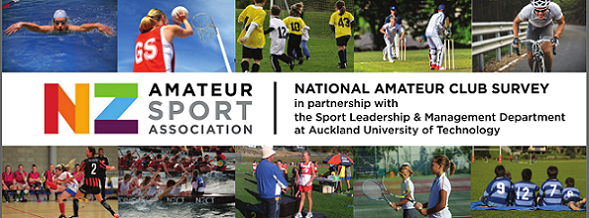
The survey takes about 15 to 20 minutes to complete and asks participants questions relating to their Club's Membership, Facilities, Management/Governance, Community and Governing Bodies. You are welcome to forward the survey link to any Clubs you may know throughout the country, who may be interested in participating.
The Sport Leadership & Management Department at Auckland University of Technology (AUT) is a partner in this project. The Association greatly appreciates AUT's support.
Catching Up With Ma’a Nonu ...
Following three seasons with French Club Toulon, All Black and Hurricanes Centurion (and double World Cup winner) Ma’a Nonu (MNZM), recently returned to Wellington.
The Editor had an opportunity to catch-up with Ma’a and asked him how important his local Club (Oriental-Rongotai RFC) was, as part of his motivation to develop and succeed as a player, following his secondary school years at nearby Rongotai College.
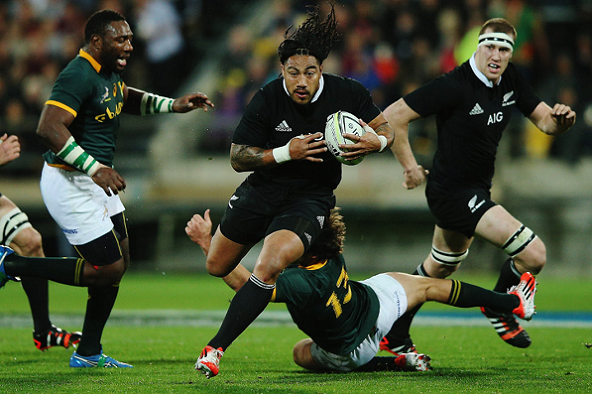
Ma’a says, “the Club was important, but what was more important were the players who played for the Club at the time. In particular, the players who didn't play representative rugby, but who were committed and passionate and who turned out every weekend, and went on to play 100 games for their Club. They were a huge motivation for me.”
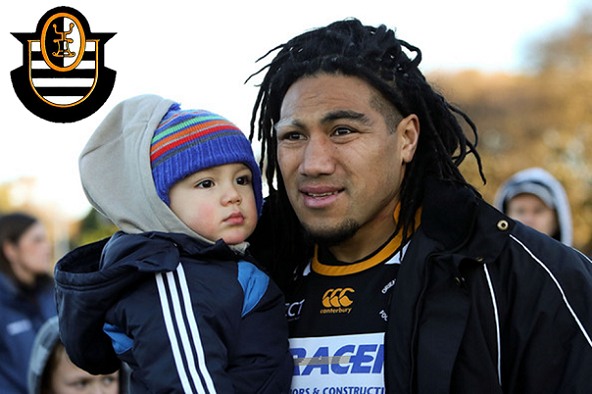
You can read more about Ma'a and this future plans, by clicking here.
When "Plan-B" Was More Important Than "Plan-A" ...
In 2000, Gerrard Fasavalu was the IRB International Under 19 Player of the Year and he seemed destined to for life as a professional sportsman, following the sport of his dreams, Rugby Union. Two years later, Gerrard suffered a career-ending injury in a pre-season match for the Highlanders, which saw his knee requiring a total re-construction. This was a major life set-back he turned into a positive by completing his studies at Otago University, achieving the notable feat of a triple-major in Classical Mechanics, Quantum Physics and History.
From Porirua, where he learned to play rugby at Porirua RFC and Northern United RFC, 1998 saw Gerrard play in the New Zealand Secondary School team, while the following year, he went on a two try scoring spree against Wales at Lanelli to win the Junior Rugby World Cup
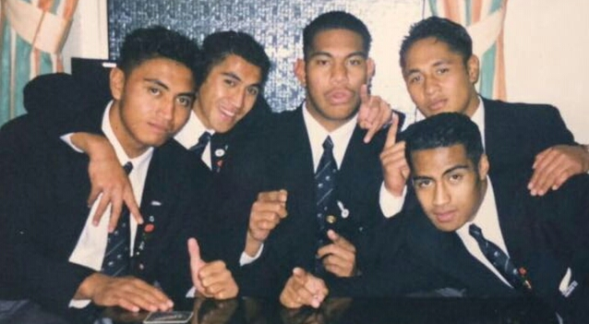
Jerry Collins, Malili Muliaina, Bradley Mika, Seilala Mapusua, Gerrard Fasavalu, in 1999
Having completed his university studies, Gerrard took up coaching in 2004, being appointed Head Coach of the Parramatta Two Blues rugby club in Australia, before returning to New Zealand. Such was the promise of Gerrard's rugby playing career, All Black Centurion Mils Muliaina said Fasavalu was the best player he knew, to never become an All Black. “He was a very talented Wing and a lot younger than me, and I thought he was going to go all the way."
Fasavalu did "go all the way" – but, not in rugby. Today, Gerrard has a very successful IT career and lives with his family in Porirua, giving back to his community and his local Club through coaching the Northern United RFC Premier Team.
Viewpoint : Where Wealth Drives Participation ...
A 2016 report from the Journal of Amateur Sport notes that in the United States, disparities and inequalities in economic resources among different social classes, have influenced both access to (and social discrimination within) sport participation. Research (according to the JAS), has consistently shown that “both adults and youth from high-income, high-education, and high-status occupational groups engage in greater rates and levels of sport participation”.

A United States survey across all types of individual and team sport activities (e.g. American football, basketball, baseball, volleyball, soccer, softball, golf, tennis, swimming, and sailing), "revealed strong patterns of association between income and rates of sport participation, with greater disparities persisting in sports that require special access to private clubs or facilities such as golf, tennis, and skiing”.
In New Zealand, reference has been made to the so-called “arms-race” that has emerged between some secondary schools competing for talented athletes to support their marquee sports teams, in certain sporting codes.
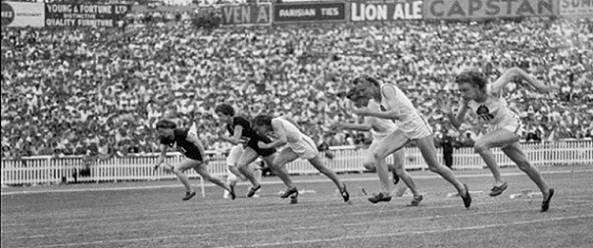
Such activity can act as a disincentive for schools with fewer resources to offer sports, where they consider themselves to be at a disadvantage, or where the cost would compromise their delivery of core education. The costs to take part in some sports, for many students and their families, can also act as a disincentive to participate. For many secondary school sporting codes, the need to address income and resource inequality should become a primary focus.
Founding Association Member “Born Into Cricket” ...
Sally Morrison, a Founding Member of the Association, was profiled in the DominionPost, last week. Sally is the first elected woman on Cricket Wellington's Board, (she was elected in 2009) and two years ago she became the first female chair of any New Zealand major cricket association. Sally has “toiled as a volunteer for nearly 30 years for the love of cricket and to ensure women get a fair go at Board level and on the pitch”.
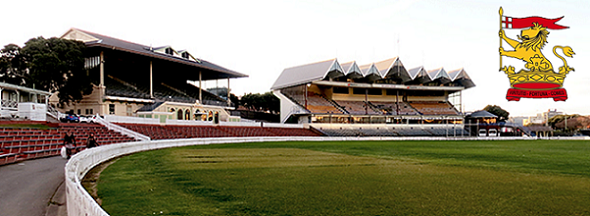
You can read the full DominionPost story, by clicking here.
Community Sports Seminar – Registrations Still Open ...
This is still an opportunity to register for the Association’s seminar on "Community Sports Events", which will be held at Victoria University’s Rutherford House Campus (adjacent to Wellington Railway Station), on Wednesday, 26 September at 5.30pm.

To register for the seminar, please click here, while you can click here for the seminar details.
There is no cost to attend the seminar, (only an investment of your time).
From The Archives ...
WAIKATO TIMES, VOLUME 91, ISSUE 14203, 30 OCTOBER 1919
AMATEUR SPORTS ASSN.
ITS FORMATION EFFECTED
"At an enthusiastic meeting held in the Municipal Bath rooms last evening, an Amateur Sports Association was formed for Hamilton. Mr W. G. Fabling occupied the Chair.
The Chairman said that the aims and objects of the Association would be to foster amateur sport, and the Association would, be formed on purely amateur lines. They should be loyal to the high ideals and the best traditions associated with amateur sport and have the desire to maintain the high position that amateur sport had always occupied in this country.
The meeting felt that amateur and professional sport could not legitimately combine.
Such an Association could do a great deal to promote the interests of sport in various ways, one body being of mutual benefit to the other and the strong helping the weak.
Mr P. H. Watts was elected President of the Association."
The inaugural President, Percy Harold Watts, was the Mayor of Hamilton for 1919-1920 (and Honorary Secretary of the Hamilton Bowling Club), while William George Fabling was a Hamilton photographer, in partnership with Henry Gaze.
Originally from Leeston in Canterbury, Fabling was heavily involved in the city’s (and province's) sporting community, being a member of the Hamilton Ping Pong Club, Hamilton Rowing Club, Hamilton Tennis Club and Hamilton Gentlemen’s Hockey Club, as well as supporting (and coaching) the Hamilton Ladies Hockey Club.
Fabling went on to become President of both the Waikato Hockey Association and Waikato Lawn Tennis Association. He died in 1961, at the age of 89.
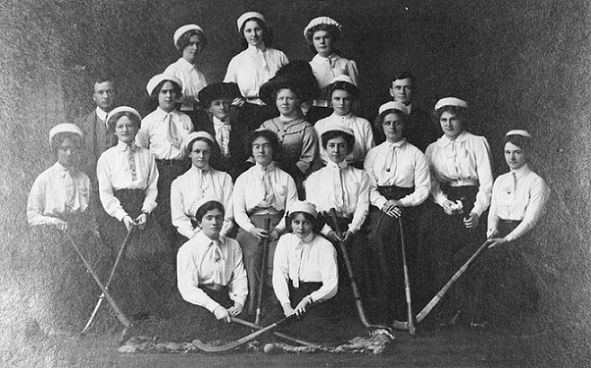
(The Hamilton Ladies Hockey Club team, which was coached by William George Fabling)
The Final Word ...
“Proponents of state funding for elite sports argue that national success inspires you to get off the sofa and get active – this claim doesn’t stand up to statistical scrutiny.”
(Ed Warner, Author of “Sport Inc.”)